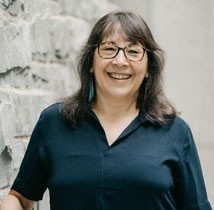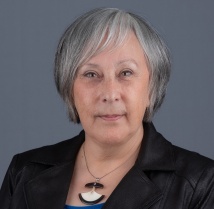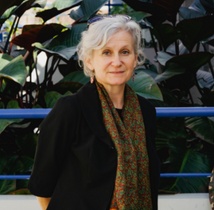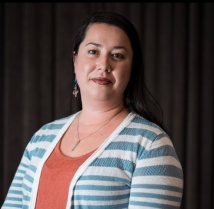Aboriginal and Indigenous Law

Uniting our nation's past and future
Aboriginal and Indigenous law intersects with almost every other area of the law in Canada. As we work toward reconciliation and Indigenous self-governance, the needs and aspirations of Indigenous communities continue to grow in scope and complexity and it is crucial for legal professionals to have a background in this area.
At Schulich Law, Aboriginal and Indigenous law is an integral part of our curriculum. Our long-standing Indigenous Blacks and Mi'kmaq Initiative gives us connections to the Indigenous community and we have a dedicated Chancellor's Chair in Aboriginal Law and Policy. All of our first-year students take the mandatory Aboriginal & Indigenous Law in Context course, and will now have the opportunity to build on that foundation through our Aboriginal and Indigenous Law specialization.
Specialize in Aboriginal and Indigenous Law
We are committed to providing a broad, critical, well-rounded and practical educational experience to students studying Aboriginal and Indigenous law. Our course offerings include both large and small group classes that combine lectures, discussions, and active learning techniques.
Our Aboriginal and Indigenous Law Specialization gives JD students at Schulich School of Law an opportunity to focus on this area, and earn a certificate upon graduation.
Students must register through Dalonline and must also complete and return the registration form to AandILaw@dal.ca.
Important Note for 3L students – Certificate Deadline
To graduate with the Aboriginal and Indigenous Law Specialization Certificate, you must register by December 1st of your final year of study. (Apply to Graduate deadline).
Specialization Requirements
To graduate with the Aboroginal and Indigenous Law Specialization Certificate students must successfully complete 15 credit hours from courses stated below. (11 from the "Mandatory" section and 4 from the "Elective" section. Courses under the "Elective" section must be completed with a grade of C in each course. (Except for courses with a Pass/Fail grade)
Mandatory courses (11 credit hours):
- LAWS 1019 & 1029 Aboriginal and Indigenous Law in Context,
- LAWS 2062 Constitutional Law and
- LAWS 2280 Aboriginal Peoples and the Law
Elective courses (4 credit hours)
- LAWS 2290 Special Topics in Aboriginal Law
- LAW 2270 Indigenous Governance
- LAWS 2289 Indigenous Law as Practice: Applying Mi’kmaq Legal Traditions
- LAWS 2227 Dealing with the Past: The Indian Residential Schools Settlement
- LAWS 2206 Kawaskimhon Aboriginal Rights Moot
- LAWS 2287 Revitalizing Indigenous Feminist Governance
- LAWS 2286 Visitorship in Indigenous Law
- LAWS 2385 Indigenous Law via Material Culture
A student may seek approval to apply a Directed Research paper in place of one course not listed above as long as it involves serious engagement with an Aboriginal Law or Indigenous Law topic and is approved by the TRC Committee. (The approval process involves the student submitting a copy of the paper proposal to AandILaw@dal.ca to obtain pre-approval from the TRC Committee. Once the paper has been completed a copy of the final paper must be submitted for final approval. The TRC Committee will determine whether the proposed paper, and then the actual paper, have sufficient Aboriginal and Indigenous law content to qualify.)
NOTE: Subject to exceptional circumstances and approval of the Associate Dean (Academic) and the relevant certificate directors, students may graduate with a maximum of two certificates. Credits from a maximum of two individual course may be counted toward two different certificates.
For example:
- Credits earned in LAWS 2127/2128 Mental Disability Law: Criminal may count toward both the Health Law Certificate and the Criminal Justice Certificate.
- Credits earned in LAWS 2221 Public Health Law, where a student writes a paper related to the health challenges experienced by Indigenous people(s), may count toward both the Health Law Certificate and the Aboriginal and Indigenous Law Certificate.
Only those courses pursued at the Schulich School of Law during the student's JD studies which lead to successful completion of a Dalhousie University JD degree will be recognized.
For questions about the Aboriginal and Indigenous Law specialization, please contact the program coordinator Professor Naiomi Metallic at AandILaw@dal.ca.
Experiential Learning
Our students have many opportunities to engage with the community, and get practical experience:
- Third-year students have the opportunity to participate in the Kawaskimhon Aboriginal Rights Moot.
- As part of the Aboriginal and Indigenous Law in Context course, first year students participate in a blanket exercise and group presentations.
- Directed research and major paper courses can provide an opportunity for students to work with Indigenous communities by researching and responding to important issues.
A faculty perspective

Achieving a mutual respectful relationship between Indigenous peoples and Canada, and equitable sharing of jurisdiction, land and resources are key challenges facing our country."
"The law plays a fundamental role in these dynamics and can serve both as a tool for oppression as well as a tool for positive change. At this point in our nation's history, future lawyers must understand as well as their roles and responsibilities in addressing these challenges."
PROFESSOR NAIOMI METALLIC
CHANCELLOR'S CHAIR IN ABORIGINAL LAW & POLICY
Our Faculty
Schulich Law's Aboriginal and Indigenous Law faculty members are world renowned experts in their field. Students have the opportunity to work one-on-one with professors who are passionately devoted to mentoring students.
Phone: 902-494-7113
Mailing Address:
PO Box 15000 Halifax, Nova Scotia B3H 4R2

Phone: 902-494-1296
Mailing Address:
6061 University Avenue
PO Box 15000
Halifax, Nova Scotia B3H 4R2

Phone: 902-494-4500
Mailing Address:

Phone: (902) 494-4092
Mailing Address:
PO Box 15000 Halifax, Nova Scotia B3H 4R2

Career Paths
Aboriginal and Indigenous Law is a growing area. With Indigenous groups exercising greater jurisdiction over their affairs and enforcing their own Indigenous laws, legal professionals with an understanding of this area are in high demand. Many law firms in Canada have Aboriginal law practice groups who advise not only Indigenous groups and organizations, but businesses, organizations, individuals and governments interacting with Indigenous peoples. Government departments and agencies, federal, provincial and municipal, regularly interact with Indigenous groups and organizations and require legal advice in this regard. Graduates may also work with Indigenous groups and organizations as in-house counsel.





